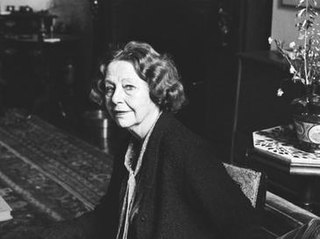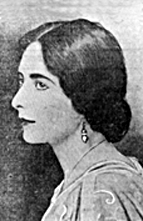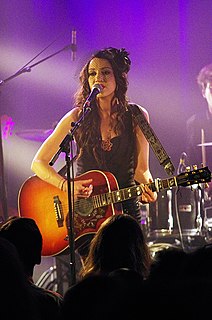A Quote by Elizabeth Hardwick
Gertrude Stein, all courage and will, is a soldier of minimalism. Her work, unlike the resonating silences in the art of Samuel Beckett, embodies in its loquacity and verbosity the curious paradox of the minimalist form. This art of the nuance in repetition and placement she shares with the orchestral compositions of Philip Glass.
Related Quotes
It took the Metropolitan Museum of Art nearly 50 years to wake up to Pablo Picasso. It didn't own one of his paintings until 1946, when Gertrude Stein bequeathed that indomitable quasi-Cubistic picture of herself - a portrait of the writer as a sumo Buddha - to the Met, principally because she disliked the Museum of Modern Art.
A writer has to take all the risks of putting down what he sees. No one can tell him about that. No one can control that reality. It reminds me of something Pablo Picasso was supposed to have said to Gertrude Stein while he was painting her portrait. Gertrude said, “I don’t look like that.” And Picasso replied, “You will.” And he was right.
I expect to see the coming decades transform the planet into an art form; the new man, linked in a cosmic harmony that transcends time and space, will sensuously caress and mold and pattern every facet of the terrestrial artifact as if it were a work of art, and man himself will become an organic art form.
The song "This Is Not Surreal," was inspired by a painter I love, Frida Kahlo. She really did suffer for her art. She speaks to me. She was brutally honest in her work. At that time in fine art, you really didn't see many female artists expressing that. She was such a strong female presence, and I really look up to her. She had a lot of physical pain.
In a way, her strangeness, her naiveté, her craving for the other half of her equation was the consequence of an idle imagination. Had she paints, or clay, or knew the discipline of the dance, or strings, had she anything to engage her tremendous curiosity and her gift for metaphor, she might have exchanged the restlessness and preoccupation with whim for an activity that provided her with all she yearned for. And like an artist with no art form, she became dangerous.
There is no mystery in a looking glass until someone looks into it. Then, though it remains the same glass, it presents a different face to each man who holds it in front of him. The same is true of a work of art. It has no proper existence as art until someone is reflected in it--and no two will ever be reflected in the same way. However much we all see in common in such a work, at the center we behold a fragment of our own soul, and the greater the art the greater the fragment.







































